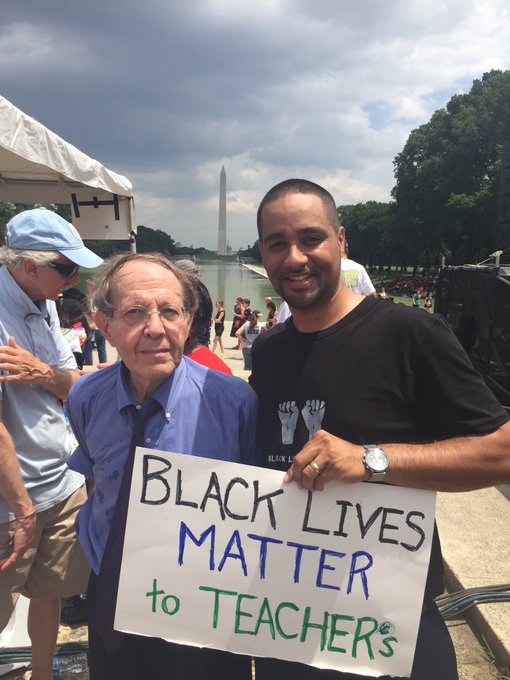Can the Save Our Schools Movement Fix Public Education?
Activists such as Jonathan Kozol headed to Washington, D.C., to protest inequalities in the K-12 system.
In a week dominated by headlines about bloodshed, protests, and inequality in the era of the nation’s first black president, one tweet on Friday got to the heart of the matter: "For black lives to matter, black #education has to matter," wrote the Twitter user UndercoverBAT, a pseudonym for a public school teacher.
The participants in the annual Save Our Schools conference are intent, however, on pushing back against what they see as the privatization of the nation’s schools—including the promotion of charter schools in places like Detroit and New York City,unequal school funding among white and minority districts, and the scant attention presidential candidates Hillary Clinton and Donald Trump have paid to the K–12 public education issue on the campaign trail.
“We just thought it was time to come back to D.C. and raise these issues again,” Anthony Cody, one of the event’s organizers, told TakePart. Education, he said, “is one of the most important issues that affects hundreds of millions of people” but typically isn’t taken seriously by most politicians.
“They give us a pat on the back when they want our vote,” but neither Democrats nor Republicans are willing to tackle the core issues head-on, Cody said. Trump, the presumptive Republican nominee, has barely mentioned an education agenda, Cody said, and “from Hillary Clinton we’ve gotten mixed messages.”
Education “is sort of a third rail,” he said.
But for Jonathan Kozol, the education activist and author who is participating in the education sessions and a march on the White House, education is no less than a fundamental civil rights issue.
Though the Save Our Schools conference agenda is broad and leans to the left—full, equitable funding for all public schools, community leadership in public school policies, child-centered, culturally appropriate curricula for everyone—the primary goal is to raise awareness of disparity in public education and what Cody calls a corporate takeover of public education.
That includes the recent proliferation of high-stakes testing, which critics say is driven by education giants such as McGraw-Hill, Harcourt, and NCS Pearson. Cody sees the same motives driving the push for charter schools in Detroit, which recently announced it would depend on the taxpayer-funded, committee-run schools to rebuild Motown’s moribund districts.
While education reform activists argue that the evaluations are crucial to teacher accountability and ensuring students in underserved districts have high-performing educators, critics say they’re being used to punish teachers and manipulate school Can the Save Our Schools Movement Fix Public Education? | TakePart:



